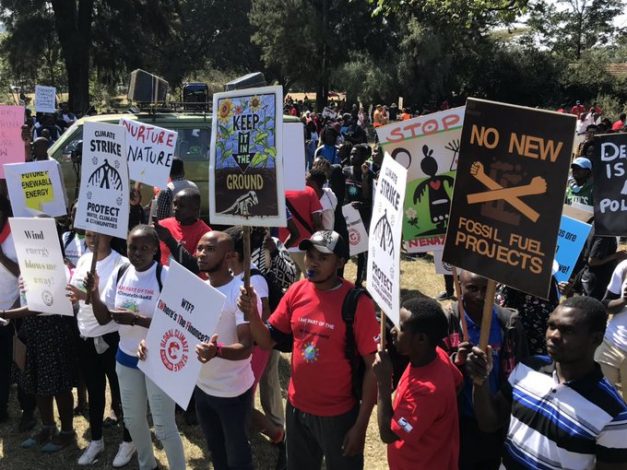
Moreover, at the onset of the COVID-19 pandemic in 2020, over 40 million Africans were pushed to extreme poverty and the region experienced its first recession in 25 years.
Given the fact that the impacts of climate change are already being felt, it is undeniable that education can play a key role in imparting relevant knowledge, skills, and competencies to address the crisis. Understanding its causes and impacts is the first step toward shifting mindsets, exploring new ways of mitigating its effects, and adapting to its unavoidable consequences.
While appreciating this fact, we must equally recognize that climate change has an impact on our education system. Student enrolment is low in parts of sub-Saharan Africa that have been severely affected by harsh environmental changes. Failure to adequately satisfy basic needs such as food, shelter, and clean water is one of the leading causes of low enrolment. Due to disputes over pastures and water supply, students from nomadic communities are unable to attend school.
In the fight against climate change, education is a tremendously critical tool.
At an early age, children have the capacity to grasp and internalize the implications of global warming and contribute to climate action.
But what measures has Kenya taken so far?
The country has made progressive strides in its education system with free primary, subsidized secondary and tertiary learning. However, because climate change has not been adequately mainstreamed into the school curriculum, developing relevant knowledge and abilities to adapt to it remains a challenge.
In 2010, the Government launched the National Climate Change Response Strategy which enhanced the understanding of climate change by addressing its concerns on communication, education, and awareness. Further, the government developed the Climate Change Act of 2016 which provides guidance and priority actions on addressing climate change taking into consideration Kenya Vision 2030 and the Global Goals.
In May 2021, the Ministry of Environment and Forestry in partnership with the Ministry of Education recognized that there is still a significant emissions gap between the Paris Agreement’s aspirational objectives and real-world commitments and actions. In this regard, they have developed guidelines for mainstreaming climate change in curricula at all levels of education and training.
Global Compact Network Kenya is encouraging the private sector to support efforts by the Ministry of Environment and Forestry in planting 2 billion trees to increase the national tree cover to the recommended 10 percent.
The Kenya Network also provides a platform for its participants to showcase their efforts in climate education. One member company Calyflora through its mizizi eco circle and color me green initiative is collaborating with schools to raise awareness on the importance of conservation to preserve our green heritage.
There is growing interest amongst companies in establishing and supporting environmental clubs across schools. Through the clubs, students have an opportunity to gain the knowledge and skills needed to support climate adaptation projects and innovations necessary for the Kenyan ecosystem.
Finally, on this World Environmental Day, let us recognize that we Only have One Earth, and that nature is at the core of development and a powerful enabler of achieving the 2030 Agenda for Sustainable Development.
It is time for all stakeholders to invest more efforts toward creating a sustainable society for future generations.
Ms. Judy Njino, is the Executive Director of Global Compact Network Kenya. She can be reached at info@globalcompactkenya.org
Khusoko is now on Telegram. Click here to join our channel and stay updated with the latest East African business news and updates.




